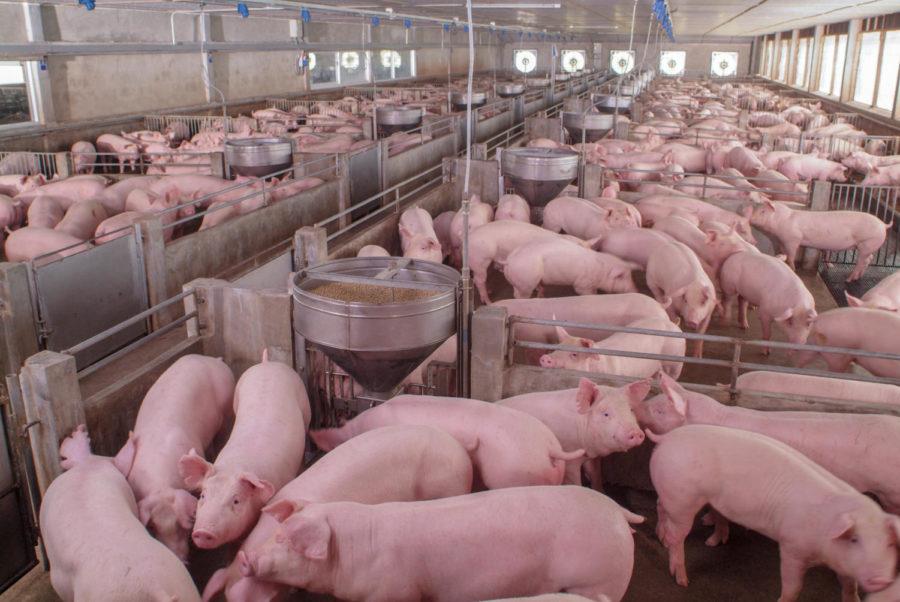Schmitt: Understanding California’s Proposition 12
October 3, 2021
There has been a significant amount of flack going around in the pork industry as California’s Proposition 12 law, passed in 2018, seeks to raise the housing requirements for chicken, veal calves and pigs produced in the state.
Formally titled the Prevention of Cruelty to Farm Animals Act, Californians overwhelmingly voted in favor of the legislation, which raises space requirements in California for animal production. It would also ban pork sold within or to California by producers that do not meet those requirements. The minimum requirements for breeding sows were raised from 16 square feet to 24 square feet in the legislation.
If the courts do not shut it down, the new law will go into effect at the beginning of 2022. Most recently, the National Pork Producers Council and American Farm Bureau Federation appealed their challenge to the Supreme Court after suffering a loss in the U.S. Court of Appeals for the 9th Circuit in July, which upheld Prop 12 against the agricultural organizations.
According to the Los Angeles Times, California produces about 17 percent of the pork it consumes. However, California accounts for 15 percent of total U.S. pork production.
What makes the law seem like an overreach is how it forces producers from other states to abide by the new rule to sell products to California, making it close to a federal law enforced by one state. Opponents of the law argue that it violates states’ ability to conduct free trade in the U.S.
Prop 12 is an add-on to the disruption in the meat sector during the pandemic, restricting the ability for vital protein to reach the plates of consumers, with notable meat processing plant shutdowns.
Not only could this law hurt producers, but it could also impact consumers. If producers in other states don’t comply, pork, especially bacon, could become extremely expensive at the meat counter.
There are those who say farmers should just comply with the law to sell meat in California, but it’s not always straightforward. Smaller producers cannot always invest new capital, as they may already be paying off previous debts from starting their operation. Producers that already indicated their compliance are larger companies that have the money and the capital.
Many lobbyists talk about the increase in consolidation of the agriculture industry and how it is a growing concern for farmers, workers and consumers. With Prop 12 looming overhead, agriculture could face more consolidation as a consequence when larger companies are buying out farms that could not meet the requirements.
The problem is not hundreds of miles away, as Iowa sells a significant portion of pork and eggs to California. Even if all producers met the requirements, we could still see higher costs in the two products as it would involve more money and capital to raise the animals.
Animal agriculture is under attack. Farmers suffered significant losses in 2020 due to a vulnerable supply chain, and Prop 12 could exacerbate the problem of high protein foods getting from farm to fork. Some animal rights activists do not believe Prop 12 went far enough, so if the new legislation sets a precedent, the livelihoods of many could suffer consequently.

















